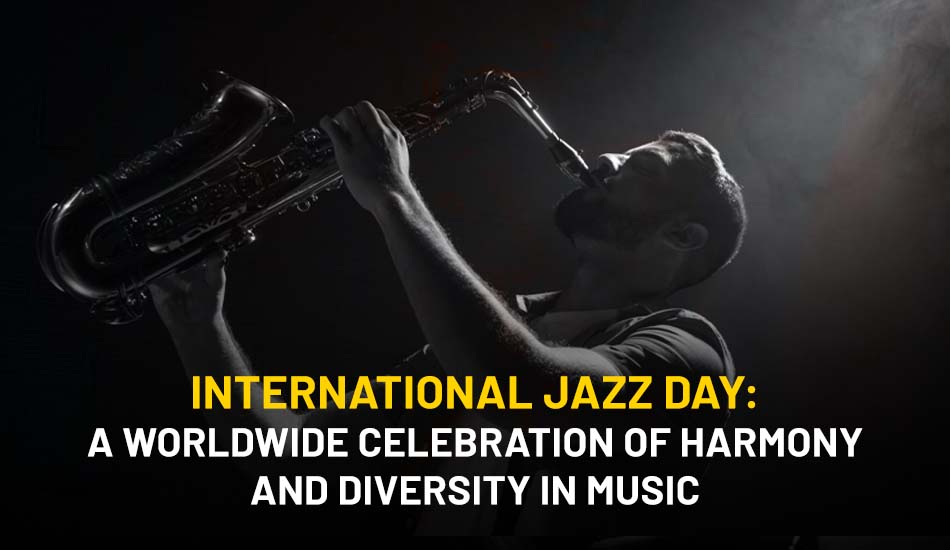“Jazz is the music of freedom, an open space for the expression of ideas, where the individual can find refuge from the oppression of everyday life.” – Herbie Hancock
International Jazz Day is not only an annual event; it is an appreciation of a part of society contributed by jazz music to society, culture, and international relations. When we explore the beginning, the essence, and the world-wide scope of International Jazz Day, it is obvious that this occasion is more than a mere tribute to a musical style; it is more a proof of modern jazz as a timeless language of creativity, freedom, and unity.
Initiated by UN Goodwill Ambassador Herbie Hancock (as well as formally proclaimed by the UN Educational, Scientific and Cultural Organization – UNESCO) in 2011, April 30 turned into the day of remembering the bright future of jazz, which genius musicianship enabled to bridge gaps, facilitate dialogues, and produce peace.
Jazz Day Date and Significance
The world recognizes International Jazz Day on every 30th of April. The music form demonstrates how it is possible to achieve peace, dialog, and mutual understanding UNESCO under the leadership of Herbie Hancock, UNESCO Goodwill Ambassador, had first proposed International Jazz Day. Finally, on April 30, 2011, UNESCO officially designated the International Jazz Day. This date is the end of Jazz Appreciation Month, which extends our celebrations and carries the torch of jazz music’s recognition from its legendary roots to the present.
UNESCO’s Role and the Global Reach of International Jazz Day
UNESCO’s current activity of International Jazz Day expresses the mission of the organization to preserve the cultural diversity in the world, preserve the intercultural dialogue, and consolidate cooperation. In the same vein, UNESCO observes the International Jazz Day project the universal language of jazz that abides by no borders, understanding no divisions of generation gap and social disparities. UNESCO’s international networks with governments, educational institutes, as well as artists worldwide serve as a platform for jazz promotion and the exchange of cultural events that culminate in greater comprehension and respect.
The History of International Jazz Day
The story of International Jazz Day Submission starts with the resolution affirming the “Declaration of International Jazz Day” from UNESCO in November 2011, recorded after a motion put forward by Herbie Hancock. Through UNESCO and the Thelonious Monk Institute of Jazz partnership, the world was introduced to an annual celebration, International Jazz Day, which has jazzy icons as its symbol. The event took place on April 30, 2012, in New Orleans, in the birthing ground of jazz, and various cities worldwide.
Celebrations Around the World
Every year, International Jazz Day is celebrated in more than a hundred and ninety countries across the globe. That fact highlights how jazz is a universal language to communicate among people all over the world. Music concerts and musical festivals, great and small, are decidedly given the celebrations and public activities held in honor of the day. Dominant cities such as NEW YORK, Paris, Tokyo, and Havana feature flagship concerts with most (if not all) jazz musicians whom everyone has ever heard of. Pragmatic events held by the local community also focus on engaging people of all ages and backgrounds.
How to Participate in International Jazz Day
Whether you’re a seasoned jazz aficionado or a newcomer to the genre, there are numerous ways to participate in International Jazz Day and contribute to its success:
- Host a jazz day event in a selected venue such as orchestras, jam, documentary viewing, and lecture spots in your community.
- Lift the jazz musicians near you and the venues where they hold performances by attending concerts, buying their albums, and telling the world about their work.
- Get involved in jazz education through participation in workshops, masterclasses, or online courses, which will help to broaden your understanding and improve your enjoyment of jazz history, theory, and improvisation.
- Interact with jazz enthusiasts and jazz groups through social media, forums, and networking events to share useful information, discover fresh ideas, and participate in future projects jointly.
Conclusion
In conclusion, International Jazz Day serves as a powerful reminder of the transformative power of music to inspire positive change and promote cultural understanding. As we commemorate this day, let’s not only celebrate the rich heritage and vibrant diversity of jazz but also reaffirm our commitment to fostering dialogue, nurturing creativity, and building bridges across cultures.
Through education, collaboration, and appreciation, we can continue to uphold the values of freedom, expression, and unity embodied by jazz music songs. Join us in honoring International Jazz Day and embracing the universal language of jazz as we strive to create a more harmonious and interconnected world.




